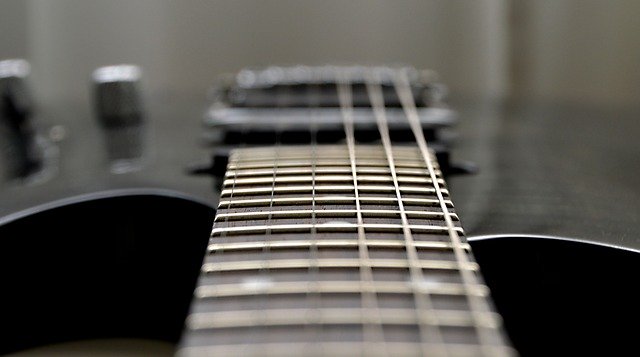
If you’ve ever Googled the phrase “nuclear power plant” and “guitar” together — and really, who hasn’t — you’ve probably watched several epic videos of guitarists playing in abandoned cooling towers. You may have even bought some picks off Amazon featuring mushroom clouds or radioactive radiation symbols(for the guitarist who needs nuclear-powered picking.)
But what you probably didn’t know, even after perusing all of the Google results, is sometimes nuclear power plants and guitars share components. It’s true. Yes, thermal power stations that work by splitting atoms may actually have a small commonality with your guitar.
It’s your capacitor — or it might be. Many guitarists prize vintage paper and oil capacitors because they say they give off a brighter, more complex tone that can’t be duplicated with newer capacitor stock.
Connected to the tone knob on the guitar’s surface, the capacitor filters frequencies of sound from the pickup to the amplifier, letting high frequencies through but rejecting lower ones. New Perspectives Music has a great demonstration video of how capacitor filtering works if you’re interested.
Nuclear Power Plants and Guitars Share Components
Paper and oil capacitors have foil-wrapping and come impregnated with oil, although some use wax or epoxy instead of oil. Sometimes people call them film-based power capacitors. These capacitors showed up in the design of early circuit boards used in nuclear turbine management systems like GE’s Speedtronic Mark II system. This system has been around since the early 1970s. It’s still in use in some nuclear plants today.
I learned about the dual-use for these capacitors while doing research on the circuit board components for our company website, which often sells the Speedtronic boards. Imagine my surprise when several guitar sites came up instead of the typical datasheets I was used to wading through. It made me laugh to think of my teenager’s guitar as a nuclear device. Although come to think of it — he takes it that seriously.
So why are these capacitors better than new stock when it comes to your sound? Some say there’s no difference — it’s all hype. But paper and oil caps won’t pick up sound as ceramic capacitors do, so there’s that. The best thing to do is to do your own research.
And if you decide to do some epic playing in a cooling tower, let me know. Just…get permission first.
Want to know more about capacitors? Head over to our post on how to identify PCB components. If you need help purchasing something from our extensive Speedtronic inventory, contact our team today.

You must be logged in to post a comment.